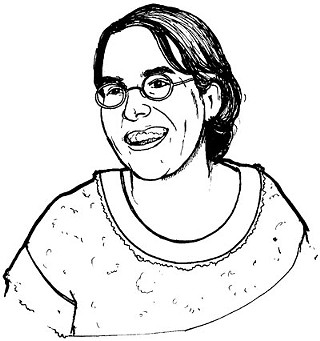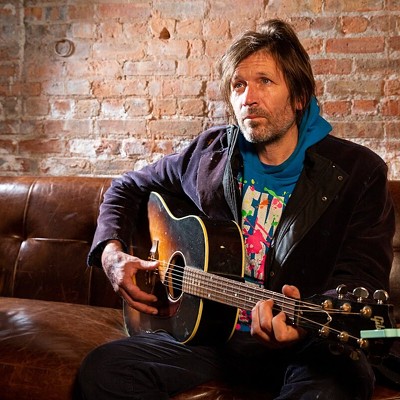There is proof of the existence of good and evil: It is Helen Hill.
Helen and her husband Paul Gailiunas—both one-time Haligonians—were shot in their rented white-sided New Orleans home one week ago. Paul: in the cheek, hand and forearm. Helen: to death. Francis Pop—their son, chubby-cheeked and cherubic like a two-year-old should be—was, by luck or mercy, unharmed.
It is a supreme cliche to talk about the goodness of people who have died violently, died young, died without warning. More than that, it’s meaningless to label a friend’s death senseless and wonder how something so terrible could happen to such a good person. No one deserves Helen’s fate. And Helen no less or more than anyone else.
Still, Helen’s is a case where cliche borders on truth. If you’ve digested any coverage of the life of this 36-year-old mother since her January 4 murder—on the cover of the weekend Globe and Mail, on CBC Radio’s national newscast Friday, in the New York Times Saturday—you must know this to be true. You must know that her heart beat differently from yours. Helen was a superhero. Better yet, she was a superhero who threw tea parties.
The waves of Helen’s decency reverberate around Halifax still. As I sit and write this, I see out of my window a larger than normal crowd gathered for the regular Sunday-afternoon Food Not Bombs free vegetarian meal outside the North Branch Library on Gottingen Street. Helen helped start the Halifax Food Not Bombs chapter.
What else is there to know about Helen? Tons. My pick? Her teeth. I can’t seem to conjure up an image of Helen without them coming at me, one trying to out-smile the next. Helen’s teeth told you all there was to know about her. They rested only when she slept.
Helen’s death feels different from that of other friends I have lost—to cancer, to a sudden heart attack. More than merely tragic, it feels like an act of evil.
The intention, the wilfulness of this wrong, leads me to think that her murder was no simple mishap and it was not a genetic mix-up or chemical reaction in a body. Another human did this to Helen, on purpose, and did it while purple petunias grew in window boxes in the New Orleans January air.
Maybe I’m wrong. Maybe the evil I sense right now—stronger in the evenings after I’ve pored over photos and videos of Helen and rifled through my keepsakes trying to find something, anything, connected to her, trying to hold a piece of her in my hands or rewind time—isn’t as malevolent and deliberate as I’m making it out to be.
Perhaps evil is banal, like Hannah Arendt wrote. Perhaps it is an energy existing in the undertow, able to come bubbling to the fore given circumstance, given the grind of life in a city that needs help (the help Paul and Helen went to New Orleans in part to see if they could provide, the help that was needed even more after Hurricane Katrina).
Evil is thick in this story. But does it matter which kind did the deed? No.
Here’s what does matter (and, yes, it’s another cliche): There is good in the world and good to give to the world. There are two-year-olds who still smile—two-year-olds with their mother’s teeth. There are purple petunias growing in January. There are superheroes like Helen Hill.













